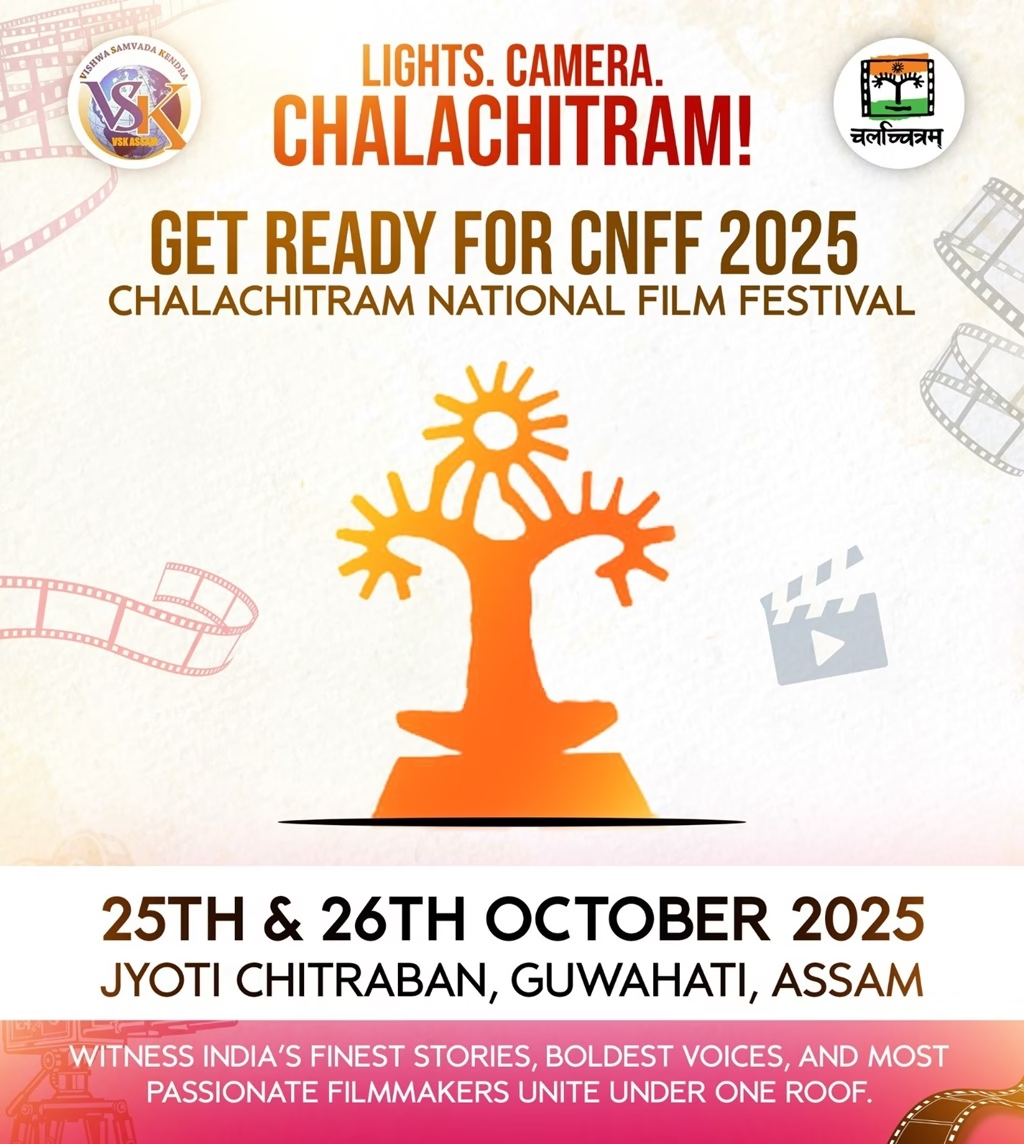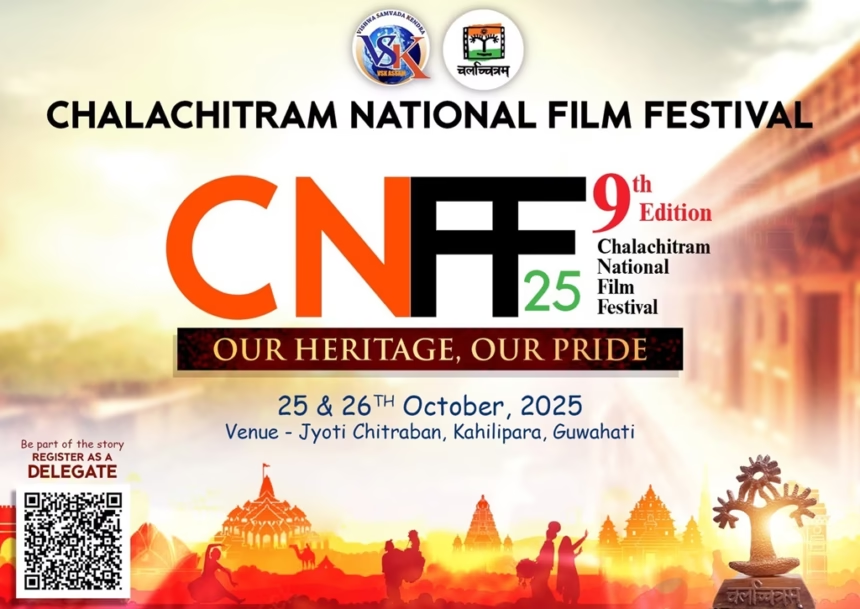ASSAM, India – Chalachitram National Film Festival returns to Assam in 2025 with a clear purpose. It backs cinema that builds national spirit, not glossy entertainment or quick profits. Film lovers can look forward to a fresh line-up on 25 and 26 October 2025 at the Jyoti Chitraban premises in Guwahati.
The 9th CNFF plans to screen around 40 documentaries and short features. Eligible films are those produced between 1 November 2024 and 15 September 2025, with a maximum length of 25 minutes. Screenings will run in competition and non-competition sections for serious film-makers, cine workers, enthusiasts, and the wider audience across northeast India.
Organised by Chalachitram (www.chalachitram.in), a film society mentored by Bharatiya Chitra Sadhna and Vishwa Samvad Kendra-Assam, the festival honours India’s living civilisation, culture, and heritage. It nurtures stories that connect people to their roots.
Launched in 2017 as the Guwahati Film Festival, the event took its current name in 2019 with the theme, Our Heritage Our Pride. The festival showcases a diverse yet focused array of films celebrating Indian heritage, indigenous communities, freedom movement heroes, epics, mythology, and cultural themes.
It highlights national unity, arts, artisans, women’s empowerment, environmental issues, traditional crafts, music, festivals, sports, monuments, social reformers, and Assam’s tea and oil industries.
A preview committee led by award-winning director Jhulan Krishna Mahanta, veteran filmmaker Bibhu Dutta, and cinematographer Hiten Thakuria has selected the final programme from more than 100 entries. A jury of artists, critics, film-makers, writers, and other professionals will decide the awards.

Chalachitram National Film Festival 25
Winning films will receive trophies, certificates, and cash prizes before an audience of noted film personalities and cine-goers. A special tribute will honour Assam’s prince of melody, Zubeen Garg, who passed away in Singapore on 19 September under unclear circumstances, shared CNFF25 secretary Bhagwat Pritam.
CNFF 2024 set a high bar. Its films reflected themes like loneliness in old age, human kindness, youthful hope, care for nature, and a warm sense of patriotism. The two-day event closed with Jaswandha named best film in the rest of India category, and A Sylvan Saga leading the north-eastern club.
Jaswandha, directed by Shoneel Yallattikar and produced by Noopur Lidbide, Nishad Kulkarni, and Shoneel, follows an elderly couple in a modern city. Their days feel heavy, yet the monsoon brings new hope. With veteran actors Neena Kulkarni and Mohan Joshi in key roles, the film struck a chord with both viewers and the jury.
A Sylvan Saga tells the fight for survival of a young single-horned rhinoceros. Rescued from a tea garden near Kaziranga National Park, it is raised for translocation to Manas National Park to help secure its future. Produced and directed by Jyoti Prasad Das, the documentary quietly celebrates the gains made in protecting rhinos and other wildlife in Assam. JP Das also won best director.
The best screenplay award went to Abhijit Nayak for Wrong Number, directed by Bijit Borgohain. The short film follows a widower drawn into a link with a child caller, only to return to his solitude with a new understanding.
The best cinematography was shared. Angsuman Barua and Pradip Ch Sarma were honoured for Aadi Shakti Maa Kamakhya, directed by PC Sarma, a documentary that explores the history and legends of the Shaktipeeth Kamakhya on Nilachal hills above the Brahmaputra.
Chida Bora and Sarpil Nandan Deka won for Teens Of 1942, directed by Samiran Deka, which salutes the sacrifice of known and unknown martyrs of India’s freedom struggle.
Bhaskar Jyoti Bhuyan received the best editing for Birubala-The Fearless Crusader, directed by Dhiraj Kashyap. The short film profiles social activist Birubala Rabha and her work to end the stigma and violence of witch hunting in Assam. The jury’s special mention went to A Letter To My Home by Devajani Halder, a moving piece on homelessness, mental health, and persistent social dominance, with a push for reform.
The awards were decided by a five-member jury of Dr Pavitra Shrivastava, Dr Santosh Pathare, Sanskar Desai, Jadumani Dutta, and Oinam Gautam. During the closing function, evergreen film personality Mridula Barua lit the sacred lamp before a portrait of Bharat Mata. Chief guest Atul Gangowar urged film-makers to use their craft to promote unity. He said cinema should bring people together, not divide, and that film should be guided by purpose rather than only money.
On behalf of the organisers, Kishor Shivam, Pramod Kalita, Riju Dutta, Aparajita Pujari, Nihar Sarma, and Buddha Bharat thanked the audience for their strong support. The team hopes the platform will inspire young filmmakers to use cinema as a powerful medium to nurture pride and patriotism.














